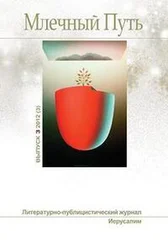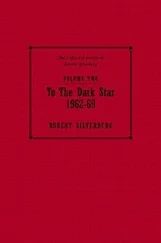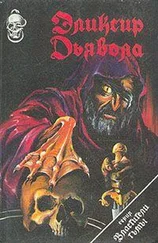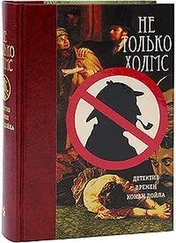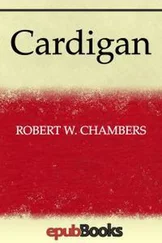I have been told that my progress at the piano is fair. But I am very certain I shall do no more with vocal and instrumental music than to play and sing acceptably for such kind and uncritical friends as do not demand much of an amateur. Without any unusual gifts, with a rather sensitive ear, and with a very slightly cultivated and perfectly childish voice—please do not expect anything from me to please you.
In French I am already becoming fluent. You see, except for certain lessons in it, I have scarcely heard a word of English since I came here; the Princess will not use it to me nor permit its use by me. And therefore, my ear being a musical one and rather accurate, I find—now that I look back upon my abysmal ignorance—a very decided progress.
Also let me admit to you—and I have already done so, I see—that, since I have been here, I have had daily lessons in English with a cultivated English woman; and in consequence I have been learning to enlarge a very meagre vocabulary, and have begun to appreciate possibilities in my own language of which I never dreamed.
About my personal appearance—as long as you ask me—I think perhaps that, were I less thin, I might be rather pretty. Dress makes such a vast difference in a plain girl. Also, intelligent care of one's person improves mediocrity. Of course everybody says such gracious things to a girl over here that it would not do to accept any pretty compliment very literally. But I really believe that you might think me rather nice to look at.
As for the future, the truth is that I feel much encouraged. I made some drawings in wash and in pen and ink—just ideas of mine. And Monsieur Bonvard, who is editor of The Grey Cat —a very clever weekly—has accepted them and has paid me twenty–five francs each for them! I was so astonished that I could not believe it. One has been reproduced in last week's paper. I have cut it out and pasted it in my scrapbook.
I think, take it all in all, that seeing my first illustrations printed has given me greater joy than I shall ever again experience on earth.
My daily intercourse with the Princess Mistchenka continues to comfort me, inspire me, and fill me with determination so to educate myself that when the time comes I shall be ready and able to support myself with pen and pencil.
And now I must bring my letter to its end. The prospect of seeing you very soon is agreeable beyond words. You have been very kind to me. I do not forget it.
Yours very sincerely,
Ruhannah Carew.
* * * * *
The enclosure was a note from the Princess Mistchenka:
* * * * *
Dear Jim:
If in the past it has been my good fortune to add anything to yours, may I now invoke in you the memory of our very frank and delightful friendship?
When you first returned to America from Paris I found it possible to do for you a few favours in the way of making you known to certain editors. It was, I assure you, merely because I liked you and believed in your work, not because I ever expected to ask from you any favour in return.
Now, Fate has thrown an odd combination from her dice–box; and Destiny has veiled herself so impenetrably that nobody can read that awful visage to guess what thoughts possess her.
You, in America, have heard of the murder of the Austrian Archduke, of course. But—have you, in America, any idea what the consequences of that murder may lead to?
Enough of that. Now for the favour I ask.
Will you go at once to Brookhollow, go to Ruhannah's house, open it, take from it a chest made of olive wood and bound with some metal which looks like silver, lock the box, take it to New York, place it in a safe deposit vault until you can sail for Paris on the first steamer that leaves New York?
Will you do this—get the box I have described and bring it to me yourself on the first steamer that sails?
And, Jim, keep your eye on the box. Don't trust anybody near it. Rue says that, as she recollects, the box is about the size and shape of a suitcase and that it has a canvas and leather cover with a handle which buttons over it.
Therefore, you can carry it yourself exactly as though it were your suitcase, keep it with you in the train and on shipboard.
Will you do this, Jim? It is much to ask of you. I break in upon your work and cause you great inconvenience and trouble and expense. But—will you do it for me?
Much depends upon your doing this. I think that possibly the welfare of your own country might depend on your doing this for me.
If you find yourself embarrassed financially, cable me just one word, "Black," and I shall arrange matters through a New York bank.
If you feel that you do not care to do me this favour, cable the single word, "White."
If you have sufficient funds, and are willing to bring the box to me yourself, cable the word, "Blue."
In case that you undertake this business for me, be careful of the contents of the box. Let nobody see it open. Be certain that the contents are absolutely secure. I dare not tell you how vitally important to civilisation these papers already are—how much they may mean to the world; what powers of evil they might encourage if in any way they fall into other hands than the right ones.
Jim, I have seldom taken a very serious tone with you since we have known each other. I am very serious now. And if our friendship means anything to you, prove it!
Yours,
Naïa.
* * * * *
As he sat there in his studio, perplexed, amazed, annoyed, yet curious, trying to think out what he ought to do—what, in fact, must be done somehow or other—there came a ring at his door bell. A messenger with a cable despatch stood there; Neeland signed, tore open the envelope, and read:
* * * * *
Please go at once to Brookhollow and secure an olive–wood box bound with silver, containing military maps, plans, photographs, and papers written in German, property of Ruhannah Carew. Lose no time, I implore you, as an attempt to rob the house and steal the papers is likely. Beware of anybody resembling a German. Have written, but beg you not to wait for letter.
Naïa.
* * * * *
Twice he reread the cablegram. Then, with a half–bewildered, half–disgusted glance around at his studio, his belongings, the unfinished work on his easel, he went to the telephone.
It being July he had little difficulty in reserving a good stateroom on the Cunarder Volhynia , sailing the following day. Then, summoning the janitor, he packed a steamer trunk and gave order to have it taken aboard that evening.
On his way downtown to his bank he stopped at a telegraph and cable office and sent a cable message to the Princess Mistchenka. The text consisted of only one word: "Blue."
He departed for Gayfield on the five o'clock afternoon train, carrying with him a suitcase and an automatic pistol in his breast pocket.
Chapter XIV
A Journey Begins
It was a five–hour trip. He dined aboard the train with little desire for food, the July evening being oppressive, and a thunder storm brewing over the Hudson. It burst in the vicinity of Fishkill with a lively display of lightning, deluging the Catskills with rain. And when he changed to a train on the Mohawk division the cooler air was agreeably noticeable.
He changed trains again at Orangeville, and here the night breeze was delightful and the scent of rain–soaked meadows came through the open car window.
It was nearly ten o'clock and already, ahead, he caught sight of the lights of Neeland's Mills. Always the homecoming was a keen delight to him; and now, as he stepped off the train, the old familiar odours were in his nostrils—the unique composite perfume of the native place which never can be duplicated elsewhere.
Читать дальше

